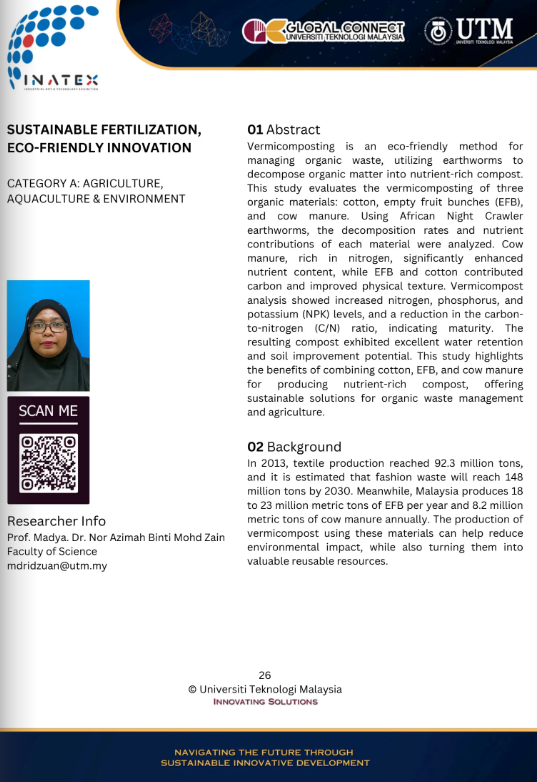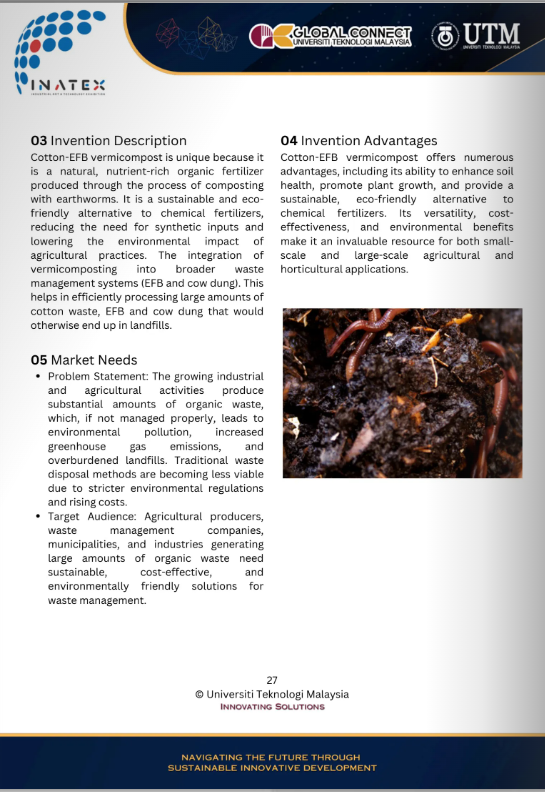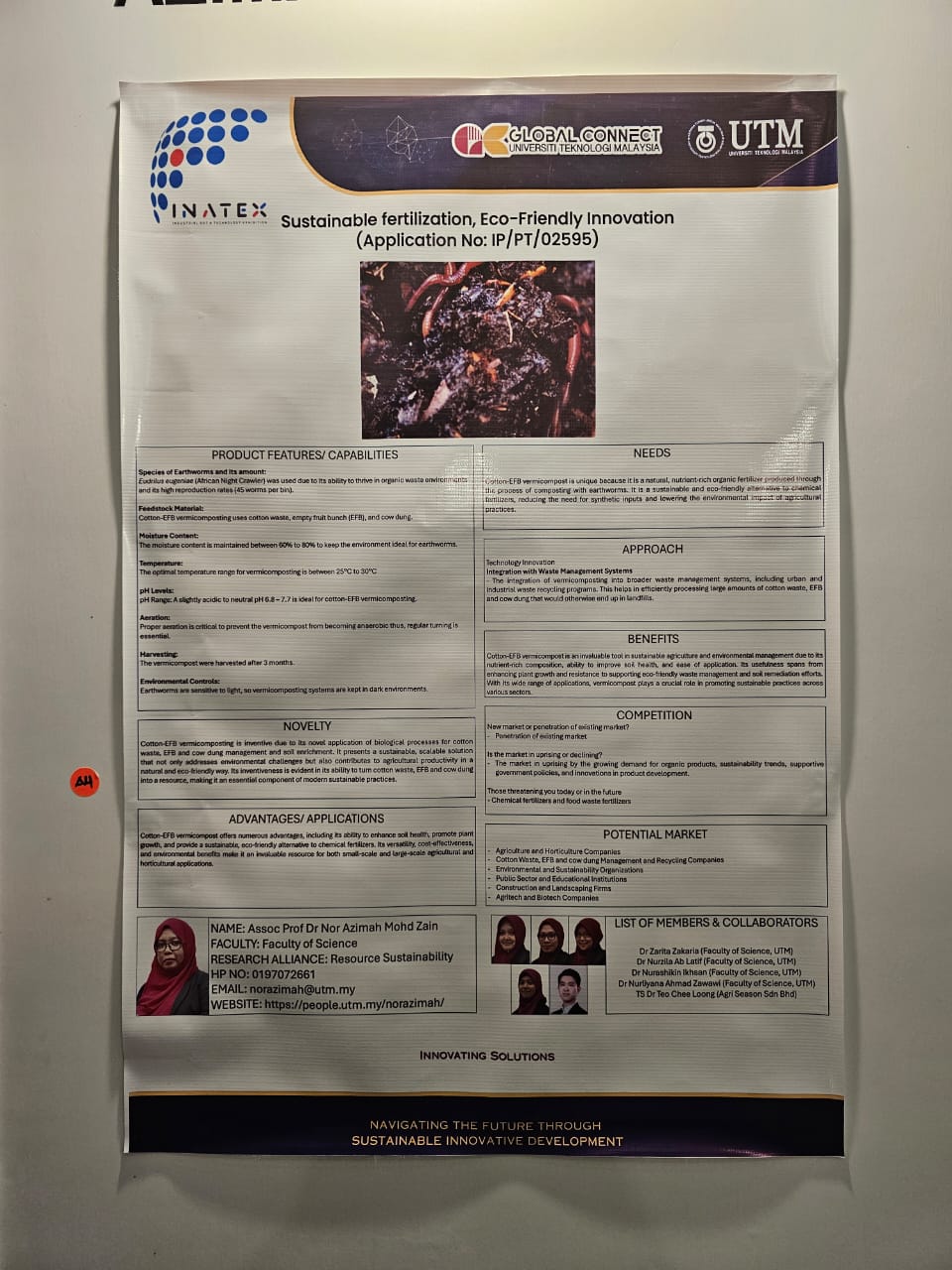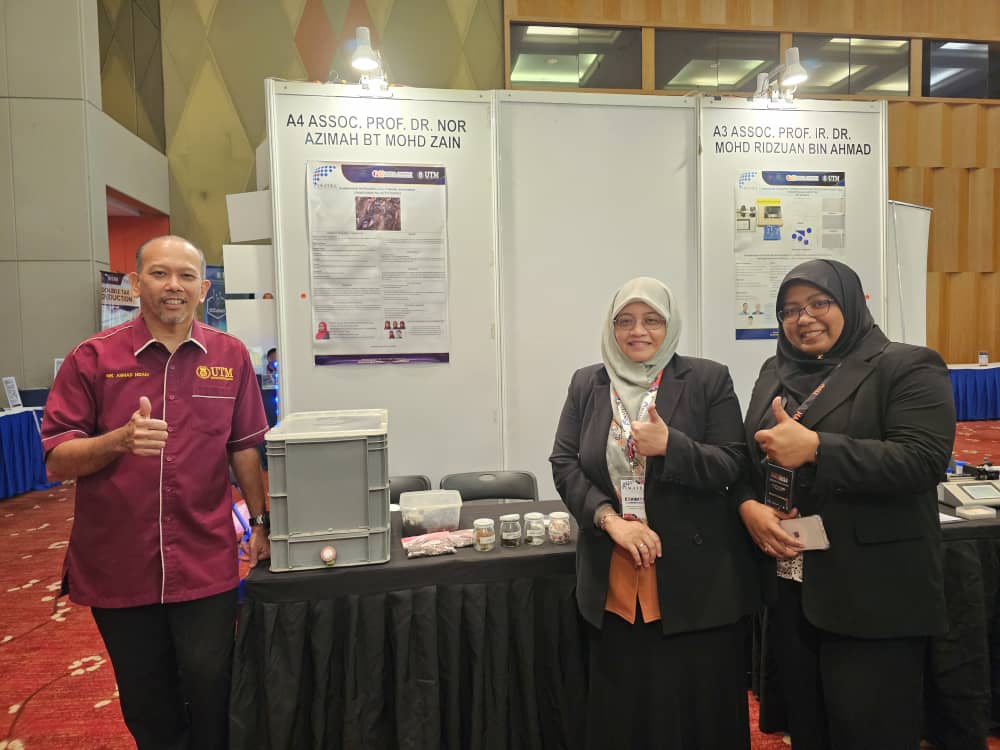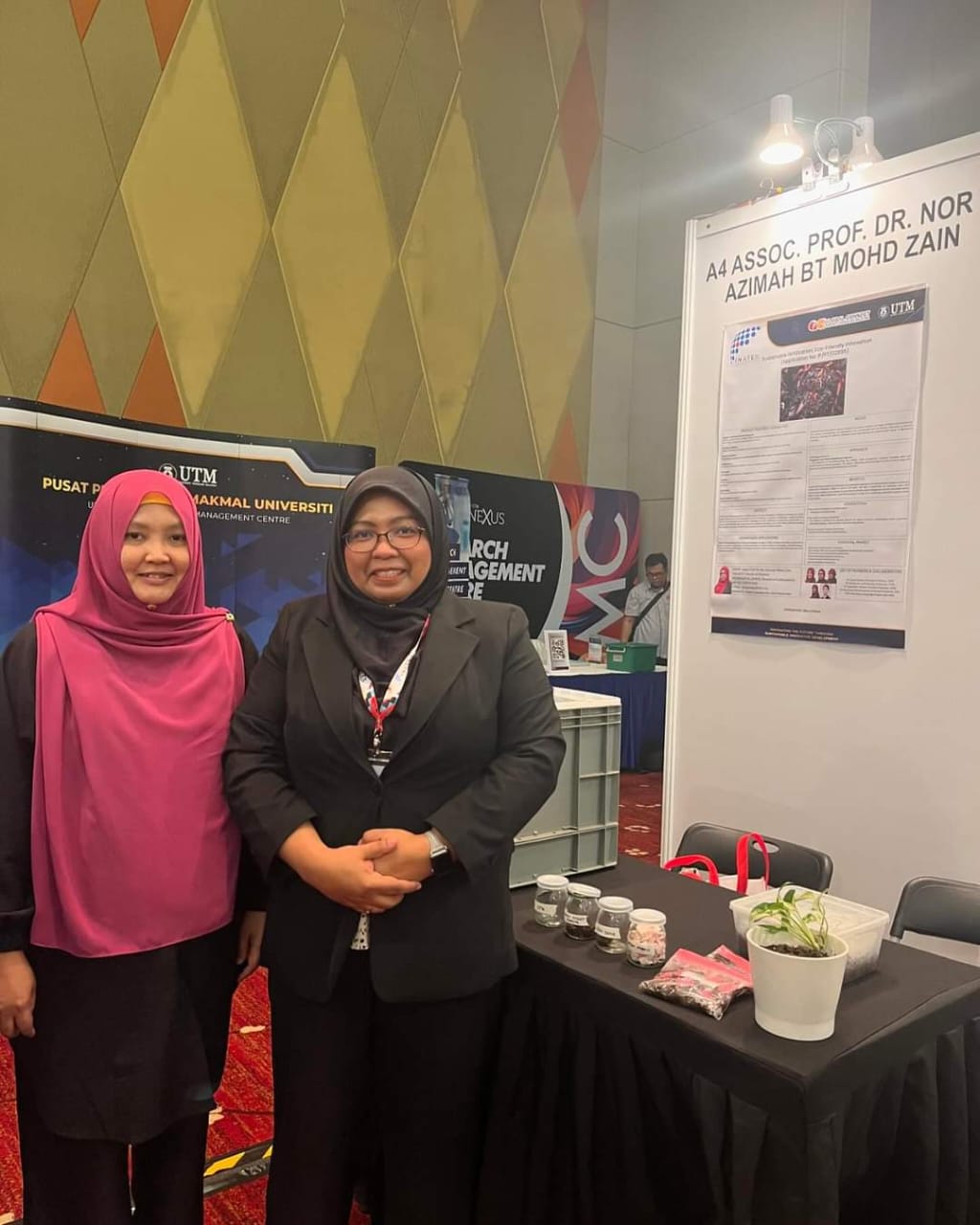In an exciting development in sustainable agriculture, researchers from UTM’s Faculty of Science have introduced a groundbreaking innovation titled “Sustainable Fertilization, Eco-Friendly Innovation” (Application No: IP/PT/02595). This innovative project focuses on using Cotton-EFB Vermicompost, an organic fertilizer created through a natural process of composting with earthworms, specifically the Eudrilus eugeniae species, commonly known as African Night Crawlers.
The project, led by Associate Professor Dr. Nor Azimah Mohd Zain, emphasizes using cotton waste, empty fruit bunches (EFB), and cow dung to create a nutrient-rich organic fertilizer. With a high rate of worm reproduction and a controlled environment, this system effectively addresses some of the major environmental challenges in agriculture, while also improving soil fertility, enhancing plant growth, and promoting eco-friendly agricultural practices.
Key Features of the Innovation:
- Species of Earthworms: The African Night Crawler was selected for its adaptability to organic waste environments, allowing for rapid reproduction and processing of waste.
- Feedstock: This vermicomposting process utilizes cotton waste, EFB, and cow dung, all of which are converted into valuable compost.
- Sustainability: The moisture, pH levels, and temperature are carefully controlled to create an ideal environment for the composting process, ensuring high-quality output.
- Technological Integration: The project is innovatively integrated with waste management systems, focusing on urban and industrial waste recycling programs.
Benefits of Cotton-EFB Vermicompost:
This organic fertilizer offers several key advantages, including enhanced plant growth, improved soil health, and resistance to disease, while also reducing reliance on chemical fertilizers and mitigating environmental damage. Its versatility makes it suitable for both small-scale and large-scale agricultural applications.
Addressing Market Needs:
The rise in demand for organic products, coupled with the push for sustainable agricultural practices globally, positions this innovation to penetrate new markets quickly. Potential markets include agriculture and horticulture companies, environmental sustainability organizations, and biotechnology firms, among others.
Potential for Future Impact:
The sustainable nature of Cotton-EFB vermicompost provides a solution to the global challenge of waste management and chemical fertilizer dependency. As agricultural practices face increased scrutiny over environmental impacts, innovations such as this are poised to drive significant change.
With collaborations from key academic figures, including Dr. Zarita Zakaria, Dr. Nuraila Abu Laisf, Dr. Nursakinah Ikhsan, and Dr. Nurlyana Ahmad Zuwawi, this project highlights UTM’s commitment to innovative solutions in the field of sustainable development.
For more information on this pioneering project, contact Associate Professor Dr. Nor Azimah Mohd Zain or visit her profile here.
This latest project is just one example of how UTM researchers continue to lead the way in sustainable, eco-friendly innovations. Stay tuned for further updates as the project progresses through various markets and applications.
